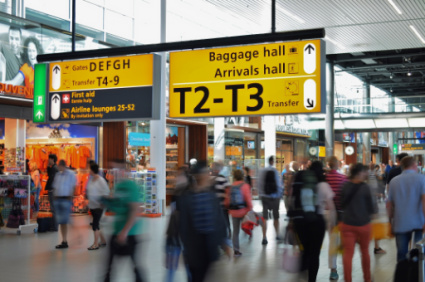
The Future of Business Travel Post COVID-19
Since March of 2020, business travel has seen a significant and rapid decline. Business executives in a recent CNBC survey estimate it will take up to three years for company travel to return to previous levels. Other experts like Bill Gates predict fifty percent of business travel will be permanently gone. Companies have figured out how to manage client and internal team meetings remotely. Virtual meetings have now become an important foundational tool for most businesses. In-person meetings still have an important role but are likely to be used less frequently with approval tied to return on investment. As you begin to think about restarting business travel, here are some key challenges to consider.
- Safety – Avoid putting an employee in a position that requires business travel if they do not feel safe. There are numerous points of exposure with business travel including air travel, cabs, hotels, dining, and meetings. It is the company’s responsibility to ensure employee safety and at the same time avoid situations that create potential liability. Since the pandemic started, approximately 2,000 COVID-19 lawsuits have been filed against employers.
2. Regulations – The CDC is changing guidance frequently and states are moving between various reopening stages. International travel requirements are defined by each country. The rules and regulations can change daily, making tracking of these variables incredibly challenging for employers and employees. To date, there is not a standardized documentation and certification of COVID-19 test results and vaccination records.
3. Testing – The current CDC recommendations for travel as of April 22, 2021 are:
a. If you are fully vaccinated, then you can travel domestically within the United States.
b. If you are not vaccinated, get tested with a viral test 1-3 days before your trip
c. After traveling, get tested 3-5 days after travel and stay home and self-quarantine for a full 7 days after travel. If you do not get tested, stay home and self-quarantine for 10 days.
d. If you plan to travel internationally you will need to get tested no more than 3 days before you travel by air into the United States (US) and show your negative result to the airline before you board your flight or be prepared to show documentation of recovery. This will include proof of a recent positive viral test and a letter from your healthcare provider or a public health official stating you are now cleared to travel.
4. Vaccination – Can employers require employees to be vaccinated before business travel? It is advised to work through these policies with your legal department as the rules vary based on your location. If companies are going to vaccinate staff, ensure the distribution is equitable and have a policy for those who refuse the vaccine for personal or medical reasons.
5. Travel Policy – Create a travel policy that is clear and concise. The policy should include when it is considered reasonably safe to travel, what documentation is needed to travel, who can travel, and what is the approval process. Avoid using terms like “essential travel” because it is ambiguous.
Companies are redefining how to manage their workforce through this pandemic. Employees have become accustomed to working remotely. Some have even relocated and are not interested or easily able to come back to work in the office. The travel warriors have figured out how to do their jobs remotely and many are enjoying not having to frequently travel. At the same time, clients are willing to do business virtually and see the benefit of not paying travel expenses. In-person meetings are going to resume as the pandemic subsides and employers, employees and clients will need to navigate these challenges together.
Contributed by: Amy Noel

